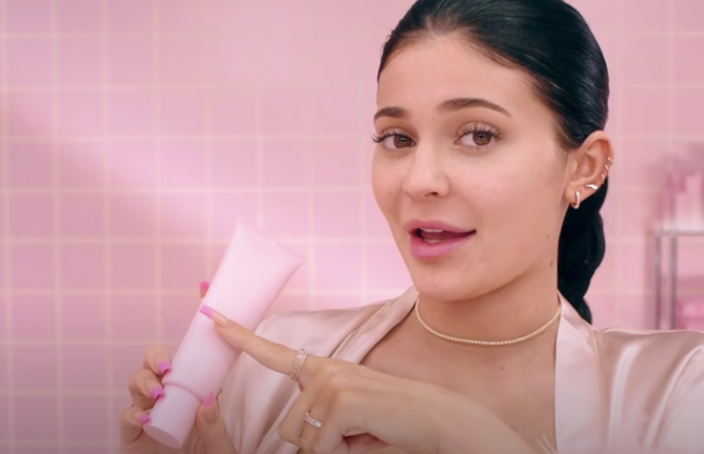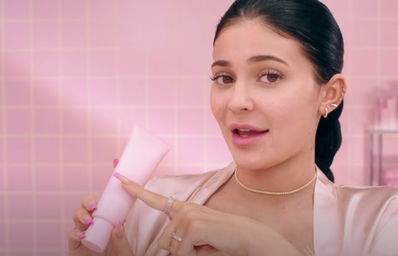TW: racism and cultural appropriation
As many of us know, Kylie Jenner’s recent Kylie Swim brand debut did not meet many fans’ expectations. Countless reviews of the swimwear on Tik Tok and YouTube showed paper-thin, see-through swimsuits with no lining and impossibly narrow crotches. To add insult to injury, the one-pieces cost $80-$85 and bikini tops and bottoms cost $40 each. These were expensive swimsuits with (worse than) fast fashion quality.
This isn’t the first time something like this has happened with one of Kylie Jenner’s brands…her first launch of Kylie Cosmetics and Kylie Skin left most fans very disappointed with the low-quality products as well.
There have been various speculations that members of the Kardashian/Jenner clan hold the belief that “all press is good press” so that even the controversy and explosion of negative reviews surrounding the brand will bring more press to Kylie.
In terms of not supporting Kylie, among the obvious reasons that her products are low quality, there are many other reasons that the public should refrain from supporting the Kardashians and Jenners. Many people fault Kylie, and many of her infamous family members, for promoting unrealistic beauty standards, black fishing/purposely looking ethnically ambiguous to increase profit, and how out of touch with reality she/they truly is/are.
Despite Kim Kardashian, Kylie Jenner, and Kendall Jenner all being accused of black fishing, blackface, and cultural appropriation multiple times, they continue to profit and receive support after everyone forgets their newest scandal within a couple weeks. One example of black fishing (and just overall adopting “Black aesthetic”) was the 7Hollywood Magazine cover with Kim Kardashian posed and dressed seemingly as a Black woman. In fact, many people thought this WAS a Black woman on the cover instead of Kim K. For obvious reasons, this sends such a yucky message: the magazine could have hired an actual Black woman for the cover photo instead of using a White woman with a large fan base, who picks and chooses what aspects of Black culture she wants to take from and who hasn’t had the lived experience of a Black woman.
On top of their excessively dark tanning and thus appearing ethnically ambiguous, Kim, Kylie, and Kendall have all inappropriately worn Black protective hairstyles such as cornrows and bantu buns. After appropriating these hairstyles multiple times in the past, Kim struggled to learn how to braid the hair of her eldest daughter, North, in a protective hairstyle on live television and seemingly hadn’t done her research, despite her daughter being half Black.
Many people also point out how the Kardashian and Jenner women justify many of their culturally inappropriate/insensitive actions by their deliberate connections with Black people such as their husbands, children’s fathers, etc. While there isn’t an issue with interracial couples, it doesn’t seem like a coincidence that every husband, boyfriend, baby daddy, and nearly every best friend of the Kardashian and Jenner women have been Black (except for the father of Kourtney’s children). The combination of their intentional proximity to the Black community and the personal alterations they have had to their appearance for historically Black or Latina features doesn’t sit right with many. While features historically associated with Black or Latina women, such as full lips, a larger butt, and dark skin are deemed unprofessional and criticized, it suddenly becomes “trendy” when White influencers take on these characteristics. Unlike actual Black and Latina women, White influencers can revert to their original appearance when the “look” is not “trendy” anymore.
In regards to physical appearance, the Kardashian and Jenner women ensure that their public image in the media and online is carefully curated and edited as needed.
A YouTuber named Bri Nobles (ig: @thenoblebri) wrote her Master’s thesis on the Kardashians and titled it Keeping Up with the Appropriation and went on to film a short YouTube series about their culturally insensitive behaviour: Keeping Up with the Appropriation Part 1, Keeping Up with the Appropriation Part 2, and her response to Khloe Kardashian’s hysteria over her leaked, unedited photo.
Earlier this year, an unrefined, unedited picture of Khloe Kardashian poolside in a bikini was leaked on the internet, as Khloe threw a huge fit and did her best to get the image wiped off the web completely. While it’s up to her what she wants to present herself as online, including any edits and photo angles she wants, it is not ok. In the aftermath of that photo leakage, she tearfully said she’s under a constant amount of pressure from the public to meet beauty standards…forgetting that her and her family are the ones who “set” this current beauty standard. By making the unachievable (by natural means) hourglass figure their BRAND, they have made countless women feel dissatisfied with their own appearance. You KNOW we have a problem when even the celebrities who are viewed as the standard can’t meet it themselves.
Yet somehow, despite scandal after scandal, this infamous family always manages to win back their fans.
As a society, we need to do a better job of holding the Kardashians, Jenners, and other influencers accountable for their actions.


